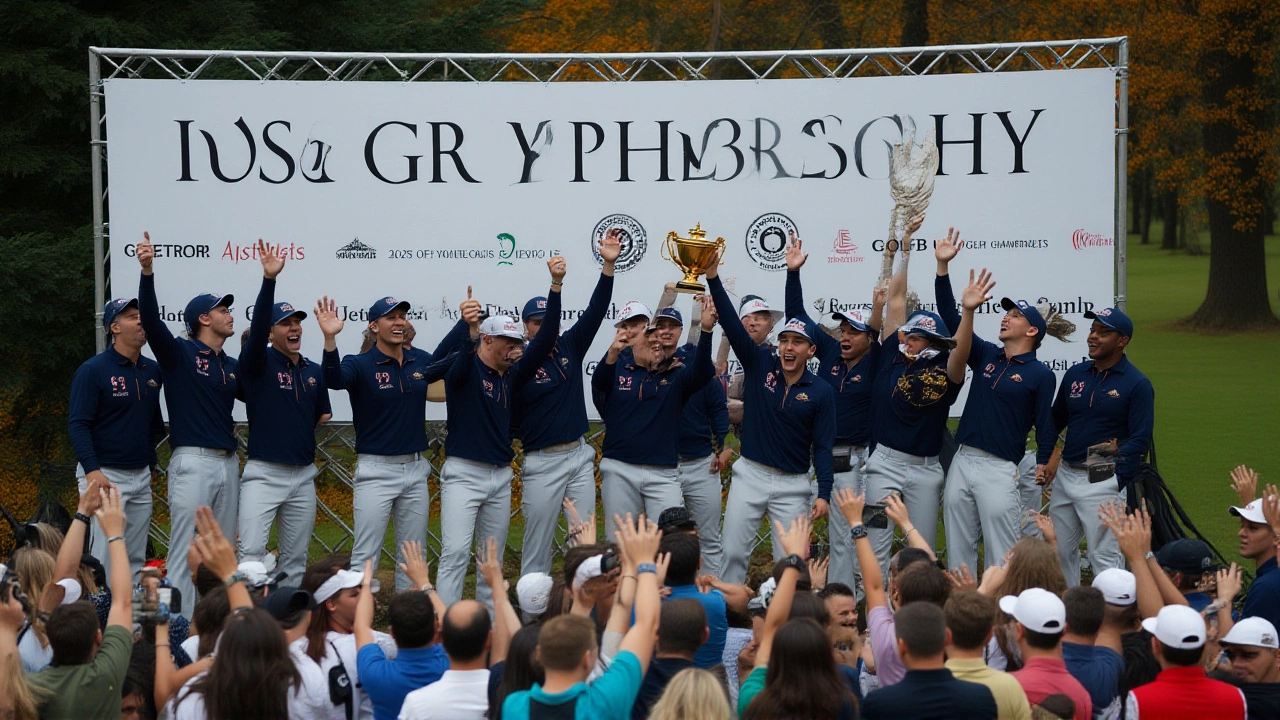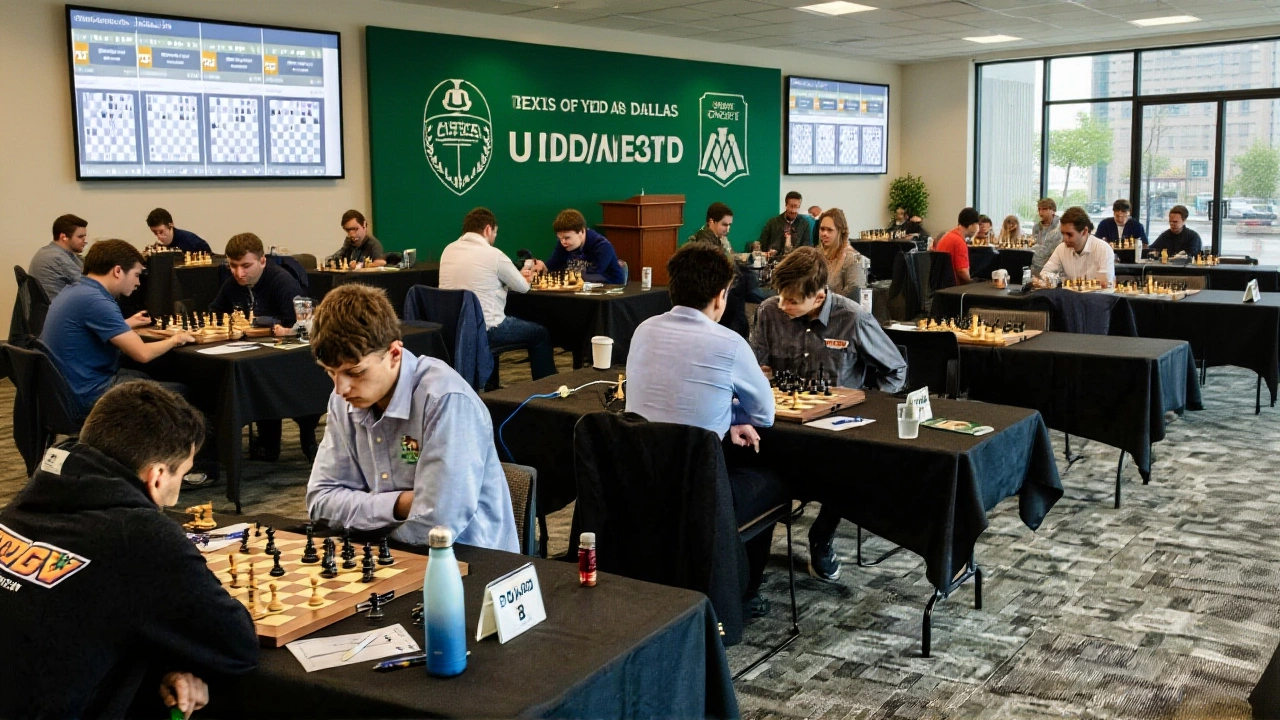When University of Texas at Dallas opened its doors for the 2025 President's CupDallas, Texas from April 4‑6, the collegiate chess world leaned in. Webster University and University of Texas Rio Grande Valley emerged as co‑champions, each tallying seven game points, but a tiebreaker handed the physical trophy to Webster. The tournament, staged in the McDermott Suite of the Eugene McDermott Library, also featured Saint Louis University and the host UTD, making it the most exclusive showdown of the 2024‑25 college chess season.
Background: The President's Cup Legacy
The President's Cup was conceived in 2001 by Dr. Timothy Redmanprofessor emeritus of literature. Since then, it has become the crown‑jewel of U.S. collegiate chess, pitting the nation’s elite programs against each other in a battle of pure game points – a twist from the match‑point focus of the Pan‑American Championship that feeds into it.
2025 Tournament Overview
The four qualifiers earned their spots at the 2025 Pan‑American Intercollegiate Team Chess ChampionshipCharlotte, North Carolina, held at the Hilton Charlotte University Place.
- UTD secured a record 20th appearance by finishing second overall.
- UTRGV qualified as the top‑ranked team with an average FIDE rating of 2479.
- Webster earned its berth by placing third, while Saint Louis rounded out the field.
All matches were streamed live from the Gaming Wall Lounge in the Student Services Building Addition, where Joe LeeCollegiate Chess League commissioner and Grandmaster Brian Escalante provided real‑time commentary.
Key Players and Match Results
UTD’s roster featured seniors Ivan Schitco and Balaji Daggupati, graduate Andrei Macovei, junior Karolis Juksta and sophomore Koustav Chatterjee. Their combined average rating of 2468 placed them second among the four squads.
Webster’s line‑up, coached by Julio Catalino Sadorrachess coach, BS'13, posted a 2462 average. UTRGV, meanwhile, leaned on a slightly higher 2479 average, giving them a statistical edge heading into the final round.
The final standings were determined as follows:
- Webster University – 7 game points, 2 match wins, 1 tie (tiebreaker advantage).
- University of Texas Rio Grande Valley – 7 game points, 1 win, 2 ties.
- Saint Louis University – 6 game points.
- University of Texas at Dallas – 4 game points, zero match victories.
Even though UTD finished last, the venue‑hosted atmosphere meant their students filled the hall, and the experience will likely boost recruiting for next season.

Reactions from Coaches and Officials
“It’s exciting for us to be able to host this prestigious college chess event two years in a row,” said Julio Catalino Sadorra. “The bid award is an endorsement from US Chess and its College Chess Committee of UT Dallas and our chess culture.”
UTD President Dr. Richard C. Benson presented the trophy to Webster’s captain and handed a silver plaque to UTRGV for second place. “We may not have taken home the cup, but we showed the depth of talent in Texas,” Benson remarked.
Coach Sadorra added that visibility is a priority: “We plan to make the matches more visible this year, so I hope more students and visitors will follow them.” The livestream’s 25,000‑plus views suggest the plan is already working.
Impact on Collegiate Chess Landscape
Webster’s seventh title widens the gap between it and the University of Maryland‑Baltimore County, which sits on six championships. Meanwhile, UTRGV’s fourth national title in seven years ties it with UTD for third‑most President’s Cup crowns.
With fourteen grandmasters, seven international masters, and a national master on site, the event set a new standard for competitive depth. The average ratings also highlight a subtle shift: Texas schools now boast the two highest team averages, hinting at a regional power surge.
Beyond the numbers, the tournament’s media footprint—combined Twitch analysis, campus coverage, and national chess blogs—has brought college chess into the mainstream conversation, something that US Chess officials say could translate into increased funding.
Looking Ahead: Future of the President's Cup
UTD already has its sights set on the 2026 edition, eyeing a venue expansion to accommodate a larger audience. The College Chess League has hinted at adding a women's team category, a move that could further diversify participation.
Meanwhile, the Pan‑American Championship scheduled for early 2026 in Austin will serve as the next qualifier, meaning many of the same names—Schitco, Daggupati, Macovei—could appear again, this time aiming for a rematch against Webster and UTRGV.
All eyes will be on whether the tiebreaker system stays as is. Some coaches argue for a pure game‑point system, while others defend the current hybrid as a fair way to reward overall match performance.

Frequently Asked Questions
How does the President's Cup differ from the Pan‑American Championship?
The President's Cup ranks teams by total game points earned across all rounds, whereas the Pan‑American Championship determines qualification primarily through match results. When teams tie on game points at the Cup, match records act as a tiebreaker, as happened in 2025.
Which schools have the most President's Cup titles?
Webster University leads with seven championships, followed by the University of Maryland‑Baltimore County with six. UTRGV and UT Dallas are tied for third place, each with four titles as of 2025.
What was the overall rating average of the participating teams?
UTRGV posted the highest team average at 2479, UTD followed with 2468, Webster sat at 2462, and Saint Louis University rounded out the field at 2420. The combined field average was about 2457.
Who were the standout players at the 2025 event?
Grandmaster Brian Escalante provided live analysis, while UTD’s senior Ivan Schitco posted a perfect 4‑0 score. Webster’s captain, Julio Catalino Sadorra, also contributed a crucial win in the final round.
What are the plans for the next President's Cup?
Organizers aim to rotate the venue, with a probable return to Dallas in 2026 and discussions about expanding seating capacity. There’s also talk of adding a separate women’s team competition to broaden participation.





